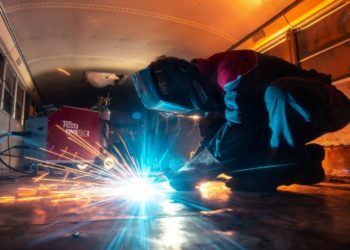The choice of the most suitable floating dock platform is thus unavoidable in any aquaculture venture. Since various boat dock companies have been availing themselves with different types of solutions that you could implement, knowing which type serves your requirements can increase your efficiency and minimize risks out on the water. This article will look at the main factors that you should consider when selecting the most appropriate floating dock platform for your aquaculture cages depending on your clients’ durability, flexibility, and cost requirements.
Evaluate Your Specific Needs
Before looking for potential products offered by boat dock companies, the need of the aquaculture farm must be properly assessed. Some of the characteristics may include the cages used and the size of the cages as well as the type of fish to be farmed and the climatic conditions of the area. For instance the regions that experience turbulent water conditions call for more stability or buoyant structure compared to the sheltered waters. Awareness of these needs will enable one to distinguish between the appropriate floating dock platform that can accommodate the weight and pressure exerted every day as well as the convenience that is needed for activities such as maintenance and feeding.
It is also important to understand growth projections of your operation if you are into aquaculture. For those planning to expand, redesign or make some alteration in the near future, the kind of floating dock platform has to be determined by such future changes. Choosing modular systems which can be adjusted or expanded in the future will prove to be far more efficient in terms of time and money as your facility expands. This foresight can help do away with disruptions as well as avoid costly changes in the docking structures which might be required in future.
Material Durability and Maintenance
The key consideration comprising the material of the floating dock platform is critical in reducing its lifecycle maintenance. Some of the typical substances used by boat dock firms are high density polyethylene, aluminum and wood. Each material has its own benefits and drawbacks: HDPE is very lengthy, it does not grow marine life on it and is very carved to corrosion hence making it the best in saltwater. Aluminum is strong and provides less weight but can corrode easily and thus will need some level of maintenance. However, appearance wise, wood is costly and requires to be treated every now and then to avoid wearing out due to water incursion and rotting. Choosing the material that will sometimes be cheaper but more resilient and easy to maintain means that the platform will function for years, therefore, cutting costs.
Selecting an appropriate material also has to do with the entire life cycle cost of the platform in question. Though it could be costly in the short run, using materials like the HDPE can prove to be cheaper in the long run as they hardly get degraded, and thus would require least maintenance. In addition, there is also the need to work with boat dock companies who purchase quality materials that meet the set environmental standards and policies on sustainable production.
Stability and Load Capacity
Holding and the capability to support load of the floating dock platform is important in controlling the aquaculture cages. Fluctuations in level will be kept to a minimum by a stable platform which is important in maintaining the health of the species that are farmed and likewise facilitating operations. Boat dock companies customarily include specific information about load carrying capacity of their platforms to accommodate both, the cages and the equipment, and any personnel going with it. Also, look for modularity features that can enable the platform’s scaling in response to increased load with growth of your business.
This stability is also very crucial for the preservation of your aquaculture cages as well as a positive impact on the aquatic animals that you have placed there. Characteristic features of the floating dock should provide it with the ability to withstand forces that act in the aquatic environment and at the same time not harm the cages and their functioning. Additional features that may be offered by many reputable boat dock companies are engineering solutions such as systems that offer even more stability to the floating docks.
Environmental Considerations
If you are deciding to install a float dock platform, do this with an ecological approach. The preferable types are those that do not adversely affect the water ecology in its broad sense of the term. Ask the boat dock’s companies about options they offer for the environmentally friendly boat dock which are using eco-friendly materials and construction techniques. Another factor is the consideration of a platform structure and its capacity to facilitate the water movement and aeration around the cages, which is very important in keeping water quality high and aquaculture stock healthy.
Environmental sustainability of the dock is best enhanced not only in the type of materials being used but also in the way the dock has been designed to support its operations in the most sustainable manner. This can be in the form of aspects that increase energy efficiency of the dock or the designs that favor the natural cleansing and feeding process especially in fish farming. They still get to follow the aquaculture sustainability indicators set globally while at the same time making your operation an industry pioneer in sustainable production.
Cost-Effectiveness and Future Scalability
Of course when it comes to making a decision, the cost is quite a vital aspect to consider, however the worth of the floating dock platform and the scope of extension should be put into consideration. There are some platforms provided by boat dock companies that at first appear cheap but are costly to maintain, or which cannot be easily expanded. Although implementing a modular platform may mean paying a premium to build the customization flexibility right into a system may be worth more in the future because the architecture can be easily scaled or altered in the future to meet needs. Finally, one should reflect on the warranty attached to the product and after-sales services because they determine prolonged use costs.
However, it is equally important to decide the material on the basis of total recurring costs of operating and maintenance, rates of cost of owning a dock across the lifecycle. A good material used in construction of this floating dock platform ensures long lasting so that there are minimal instances of repair thus improving on the overall efficiency of the farming system. Additionally, buying boats from dock companies with fully equipped after sales services that include boat maintenance services and boat part replacements will really increase the lifespan of your investment by meeting our growing needs.
Whenever one is in the market for a new floating pontoon boat for sale they should ensure that they buy from a reputable boat dock company which has good warranties and customer services. This not only convinces the buyer about the quality of product s/he is using but also gives a sense of security that in case of any problem the necessary assistance would be provided.
Therefore, improving the selection of the floating dock platform for the aquaculture cages include: operation requirement, floating dock materials, platform stability, environmental aspects and costs. It is always good to consult with other companies that have dealt with boat dock and get to know which firm offers the best product to suit your needs. Therefore, when you opt for an improved approach, productivity of the aquaculture operations as well as the profitability of the business will improve rendering the operations more efficient and sustainable.




![7 Best POS Software in the UK [2026 Edition]](https://todaynews.co.uk/wp-content/uploads/2026/02/7-Best-POS-Software-in-the-UK-2026-Edition-360x180.png)
























































![7 Best POS Software in the UK [2026 Edition]](https://todaynews.co.uk/wp-content/uploads/2026/02/7-Best-POS-Software-in-the-UK-2026-Edition-350x250.png)














